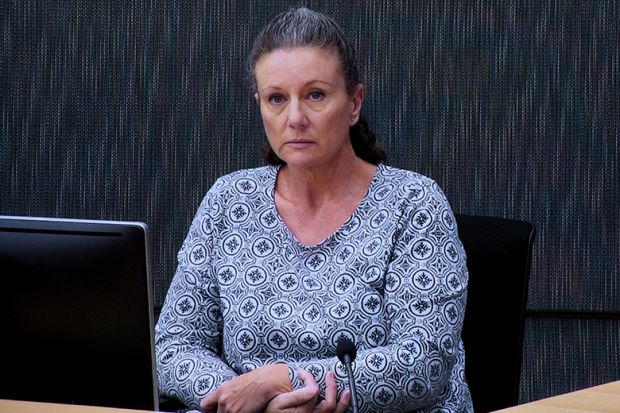An Australian learned academy has called for changes to the country’s legal system, after its members helped secure an unconditional pardon for a woman once reviled as the nation’s worst female serial killer.
The Australian Academy of Science said the “great integrity” of the peer review system should be harnessed to make the legal system more “science-sensitive”.
“We do not always have a system where the most…expert person is made available,” said chief executive Anna-Maria Arabia. “We don’t need scientists put into a boxing ring.
“We need a way in which science can be heard fairly, transparently and independently by the justice system…so they can bring to bear their knowledge in an unfettered way.”
New South Wales (NSW) governor Margaret Beazley has pardoned Kathleen Folbigg, who endured 20 years’ imprisonment over the deaths of her four young children, on the recommendation of state attorney general Michael Daley.
Mr Daley intervened after a preliminary report from former NSW chief justice Tom Bathurst, who is hearing a second judicial inquiry into Ms Folbigg’s 2003 conviction, concluded there was “reasonable doubt” about her guilt.
It was an outcome that numerous appeals and an initial judicial inquiry had failed to achieve, despite mounting evidence – including a recently discovered mutation in a gene associated with sudden infant death syndrome – that all four children had succumbed to death from natural causes.
The pardon came five days after a motion seeking Ms Folbigg’s immediate release, moved by Greens justice spokeswoman Sue Higginson, was passed by the state’s upper house. The government had acknowledged the “need for urgency” while vowing to “carefully and thoroughly consider the evidence and findings”.
Ms Folbigg’s convictions have not been quashed, lobby group Justice for Kathleen Folbigg stressed. “The only body that can do that is a court of criminal appeal. Our fight for justice continues, but we are thrilled that she finally has her freedom.”
“A good final outcome to such a sad story,” Nobel laureate Peter Doherty tweeted. “It’s a great day for science,” said Australian Academy of Science president Chennupati Jagadish. “The justice system has taken consideration of the scientific evidence.”
Robert Moles, an adjunct associate professor in Flinders University’s College of Business, Government and Law, said the Folbigg conviction should never have occurred. “There was no forensic pathology evidence to support a conclusion of death by smothering.”
Griffith University geneticist Jeremy Brownlie said the pardon was a “watershed moment” for Australia’s legal and scientific communities. “While much will be written about Folbigg’s incarceration and what her future holds, the bigger question is how new scientific fields and technologies can be applied to legal cases of the past.
“As a nation, we already rely on independent scientific expertise to help to governments and industries in making informed choices. It only makes sense to extend this practice to our justice system.”
Ms Arabia said Australia should consider emulating other countries in establishing a criminal case review commission where “science can be heard after all of the appeals mechanisms have been exhausted”.
“There are myriad…pleas for pardons and other such things based on new evidence coming to light – too many for anyone to look at just in an ad hoc way. We…need a system where those cases can be looked at on a case-by-case basis to determine whether they need to be opened again.”
Register to continue
Why register?
- Registration is free and only takes a moment
- Once registered, you can read 3 articles a month
- Sign up for our newsletter
Subscribe
Or subscribe for unlimited access to:
- Unlimited access to news, views, insights & reviews
- Digital editions
- Digital access to THE’s university and college rankings analysis
Already registered or a current subscriber? Login










